How Getting to Know Your Neighbours Helps With Zero Waste Living
It’s easy to reduce the idea of zero waste living to thinking about the products we buy (or don’t buy) and the choices we make as individuals. But zero waste (and living with less waste) is a movement, and movements need people. We can only do so much when we act on our own.
Sure, zero waste living can mean shopping at bulk stores and making our own skincare products. That’s part of the story, but it is not the whole story. Ultimately zero waste about consuming less and buying less, and that means rethinking the way we use resources: reusing, making do, borrowing and repairing.
We think of bulk stores and libraries and Farmer’s Markets as great resources for living with less waste, and they are, but there’s a much less talked about asset almost all of us have access to: our local community.
It’s mentioned far less but is equally (and possibly more) valuable for zero waste living.
One of the most valuable assets for my zero waste journey has been my neighbours. I thought I’d share some of the ways we’ve helped each other reduce our waste, and hopefully give you some ideas for how you might be able to get involved with your own community.
What My Neighbourhood Looks Like
Just as a bit of background, let me tell you a little about where I live. I moved into my current suburb in 2016 from the other side of Perth – so I haven’t lived here for very long. My neighbours from four doors down built the property where I live, and I met them through that process back in 2014. I didn’t know anyone else when I moved in.
There’s 7 properties on my block, some rented and some owned, and residents have come and gone in the two years I’ve lived here. Our suburb is close to the city but not densely populated – there’s about 2,500 residents, with 28,000 in the local government area.
In short, I live in a city but it isn’t an urban metropolis: it has quite a suburban feel.
How I Met My Neighbours
There are probably three ways I met my neighbours. The first (and perhaps most obvious one) is seeing them at their front doors, in the garden, in the street etc, and saying hello.
The second is by neighbours introducing other neighbours they knew and I didn’t. This is both in passing and at various events in the town. Slowly the network spreads.
The third way (oh, how 21st century) is via the internet. One of the best tools has been our local Buy Nothing group, which operates using the Facebook groups function (more on that in a sec).
How My Neighbours Help With Zero Waste Living
Sharing Ideas
Sharing ideas has ranged from the big to the minuscule, and all are important. On the far end of the scale, my neighbour and I hatched a plan to turn the disused patch of land next to my block into a community fruit tree project.
I’d had the idea, and he’d the same idea, and once we got together and realised we both had the shared vision we started to make it happen. (You can read more about how we started our community food tree project here.)
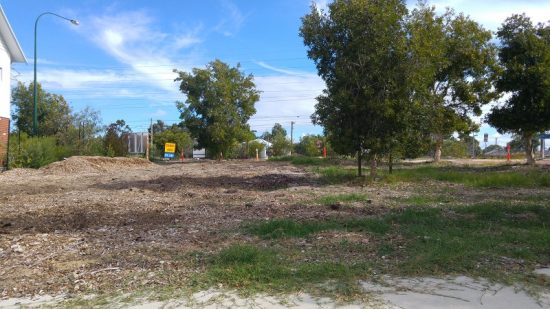
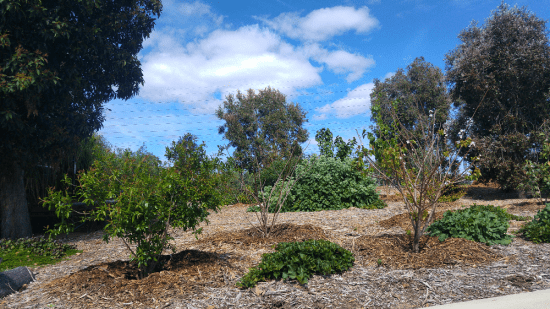
We’ve planted around 24 fruit trees, and they should keep our neighbourhood in plastic-free locally grown produce once they’re a little bit bigger :)
From that, we decided we needed a little help with the tree pruning this spring, and invited the neighbours along so they could benefit from the knowledge.
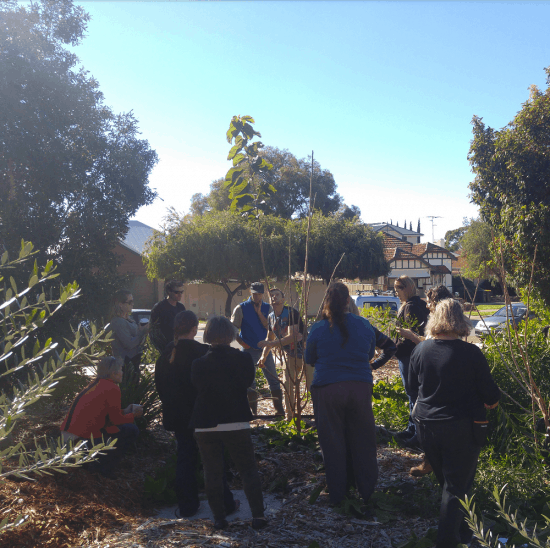
Lathlain is now sporting the best pruned fruit trees in Perth, not just here but also in all the gardens of the people who came along!
On the other end of the scale, I showed my next-door neighbour how to make mint tea with fresh mint leaves. (It’s super simple – you literally steep fresh mint leaves in hot water. Taste sensation.) Now she does that rather than buy teabags.
She made the most delicious nettle soup I have ever eaten from stinging nettles from her garden. (Not something I’d ever have tried before, but definitely something I’ll try now.)
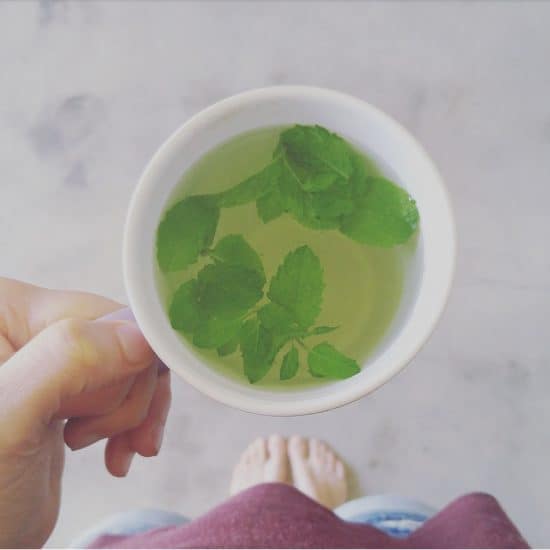
We’ve also had some good discussions about the in’s and out’s of establishing a functioning worm farm, what actually goes in the recycling bin and some of my neighbours are currently organising a street get-together.
Sometimes it just takes a conversation to spark a new idea or go one step further to changing a habit.
Sharing Resources
A spin-off from the food tree project has been our community composting bank. We share our compost bins with the neighbours, which means lots of food scraps diverted from landfill, and lots of compost we’d otherwise need to purchase. Most of our neighbours have found us through sharewaste.com.
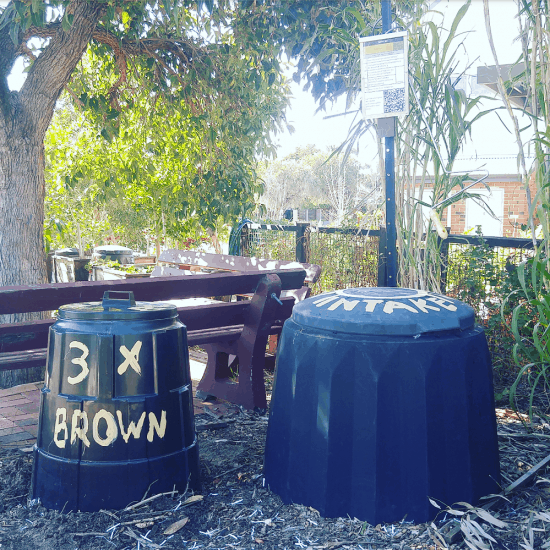
Sharing the Work
The thing about projects led by a single person, is that when that person gets tired, sick, overwhelmed or otherwise occupied, the project tends to fall over.
One of the best things about our Food Tree Project is that there’s multiple people invested, so if one person is too busy, others can step up to keep it going. I’ve taken a step back this year as I’ve had too many other things going on. My neighbour, however, is taking a year off from work and has extra time to keep things going. Consequently the fruit trees look better than ever.
Sharing Stuff
With my closest neighbours, who I know by name, it’s easy enough to knock on the door and ask to borrow something. And I do, regularly. Garden tools, kitchen gadgets, ingredients when I realise I’m out of something mid-way through a recipe and the shops are shut.
Most recently I borrowed a coffee grinder after mine bust, and lent a book to the same neighbour who’d been contemplating buying one and seen (via social media) that I’d already bought it.
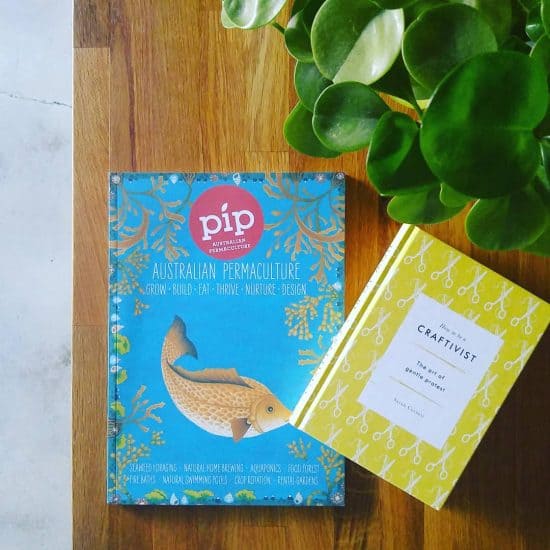
I also passed on the magazine to a different neighbour. Things are for sharing!
But when you don’t actually know someone, it’s a little bit harder to borrow something – and possibly a little bit weird to just bang on the door.
Thankfully, the internet can help us out.
There are plenty of online groups and platforms that allow neighbours to connect with each other, firstly on line, and then perhaps in person. The two groups that I use are my local Buy Nothing Group, and my local Swap Share group.
The Buy Nothing Project is a network of hyper-local community groups where people can give, borrow and accept items ,but no money changes hands. People are only allowed to join one group: the one where they live. Consequently the members are all neighbours.
The Buy Nothing group has been a great way to find second-hand items. I tend to give more than I take because I generally don’t need much stuff, but I have scored a few useful items. My two best finds: a pair of almost new trainers in my size, and a computer monitor to use with my (tiny screen) laptop.
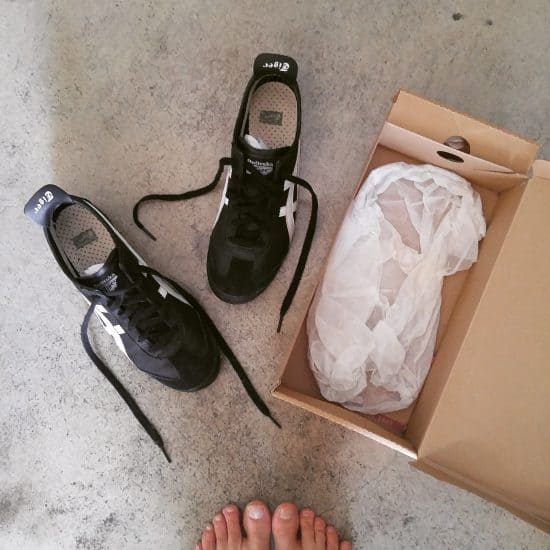
Another great win via the Buy Nothing Group was borrowing a screwdriver to enable me to change the damaged/worn seal on my coffee machine. The guy I borrowed the screwdriver from was also kind enough to help me take it apart and gave it a good clean with an air pressure thing.
I purchased a new seal, and the machine is as good as new. The screwdriver was duly returned.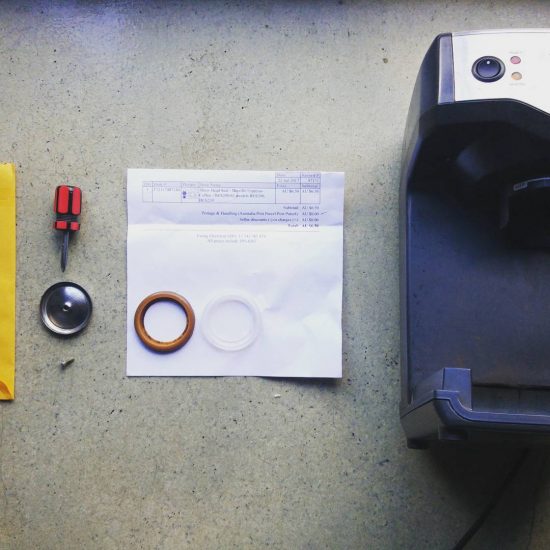
There’s plenty of other donating and lending/borrowing of things via the group. It means resources are much better used (things languishing in cupboards are being wasted) and it means people not buying new stuff.
If you’re not a member of your local buy Nothing group I’d suggest joining, and if you don’t have one, I’d recommend beginning your own!
The Swap Share group meets once a month, and is for people to donate and swap excess garden produce. There’s also been a great deal of swapping recipes and other goods: pickles, preserves, DIY cleaning products and more.
I had no idea pickled radishes were so delicious until I picked some up from a Swap Share get-together!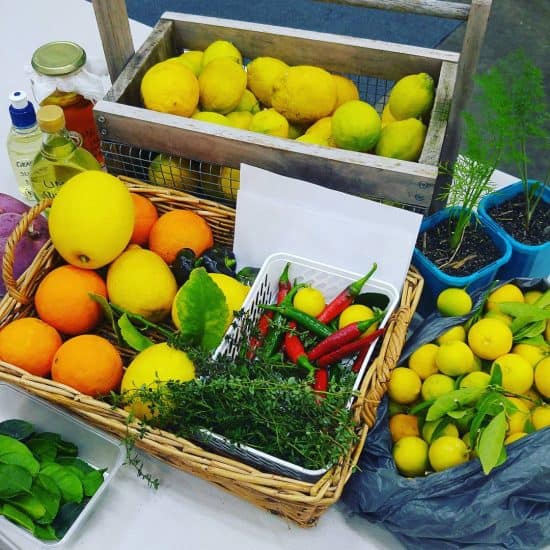
Without my neighbourhood network there’s no doubt I’d have purchased a lot more things and wasted far more time looking for solutions. Worst of all, I’d have missed the opportunity to get to know and help out the great people who live in my suburb.
Local solutions are almost always the lowest waste solutions. If we’re passionate about reducing our waste, getting to know our neighbours and exploring our neighbourhoods is definitely something to embrace.
Now I’d love to hear from you! Have you embraced any neighbourhood community groups or hyper-local networks? What have been your experiences? How have you met your neighbours and the people in your suburb – or do you not know them? Anything else to add? Please share your thoughts in the comments below!
[leadpages_leadbox leadbox_id=1429a0746639c5] [/leadpages_leadbox]



